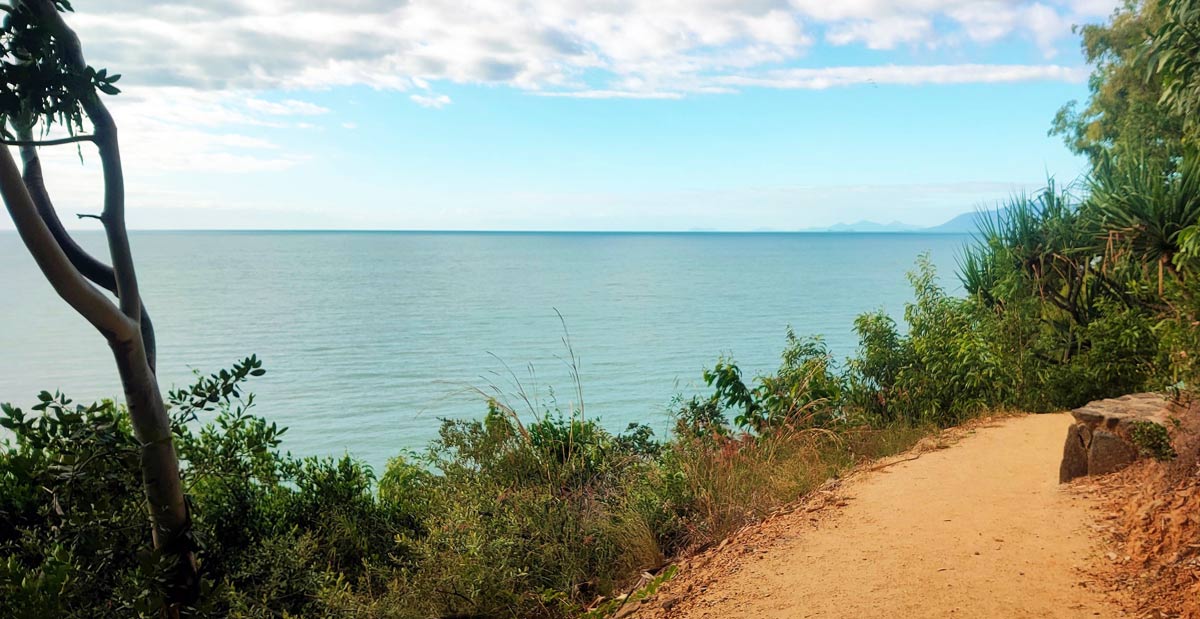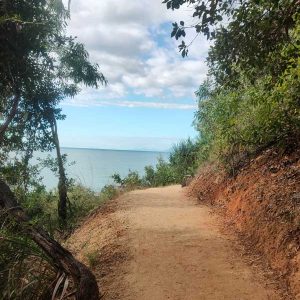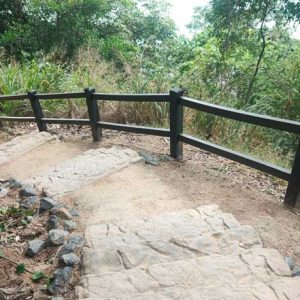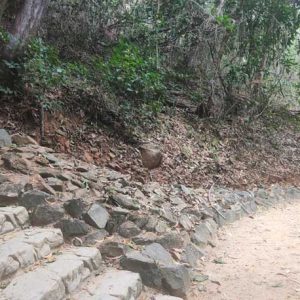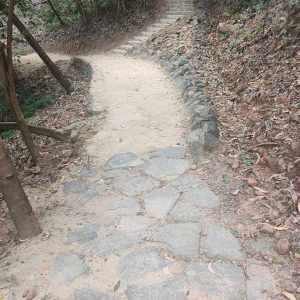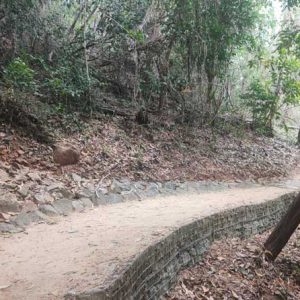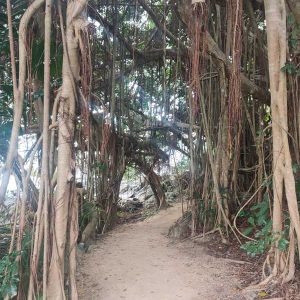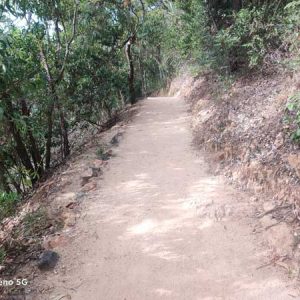Stage 2 (2017) & Rectification (2019) – Douglas Shire Council
Phoenix Onsite Project Manager: Stewart Cowe, Managing Director
The now iconic Flagstaff Hill Walking Trail completed for DSC involved the construction of a Class 3 walking track through sensitive rainforest habitat on a very public Port Douglas headland. The project took 12 weeks to construct and was completed in November 2017.
Phoenix was contracted through a joint partnership to provide labour, supervise and construct the trail as well as organise materials, manage the work, safety and quality outputs of various subcontractors. We were also to liaise with Douglas Shire Council engineers and the community members who reside along the trail. Five Indigenous locals were employed, who each completed a Certificate 1 in Construction during the project.
The trail was 1.8 kms long and incorporated a number of applications and disciplines including:
- 240 cast concrete steps
- gabion walls
- rock armouring
- decomposed granite tread surface
- wall stabilization
- rock pitched seating
- 3 viewing platforms
- 1 bridge
- recycled plastic fencing
- section of bitumen for mobility impaired
While the site location was not remote as such, it was an extremely difficult job logistically, with limited and restricted accessibility for machines and materials. It was a very labour intensive project requiring much ingenuity to overcome numerous obstacles and challenges.
With the trail pre-marked by Council, Phoenix identified areas that could be realigned and negotiated with Council resulting in a better finish and more cost effective outcome.
The logistics of managing the western end of the trail was significant as there were a number of private houses abutting the track. The trail ends at Little Cove which is a highly sought-after wedding venue. It was necessary to accommodate wedding ceremonies on a regular basis which resulted in modified working conditions. Apart from the steep and difficult terrain, Phoenix also had to manage and prevent dust and noise pollution which we did by altering working hours and applying more watering. The top priority was to make minimal impact on the surrounding environment. Sourcing water to apply for dust control and compaction of trail materials was another challenge overcome. The solution was to place 1000L water pods in key areas to minimise the distance to run the water.
Although signage and barriers were set in place, the curious public were a constant disruption to the project. Trespassers were courteously escorted off site for their safety in a professional manner which was often praised. Spotters were used while machinery was in operation for the safety of visitors (authorised and unauthorised) and for the protection of the environment and any potential cultural findings.
Despite strict time limit constraints and periods of inclement weather, the project was successfully completed on time and on budget to the great satisfaction of the council and has been hailed as a significant tourist attraction for the region and well accepted by all stakeholders including the residents and local Indigenous and environmental groups.
In June 2019, Phoenix returned as a Principal Contractor to carry out substantial rectification measures due to a significant rain event resulting in landslides above the trail. The rectification measures included cutting in and construction of a new section of trail approximately 500 metres long as well as repairs to the existing trail. Additional cast concrete steps were also installed. A concerted effort was made on improving drainage and water runoff of the overall trail, comprising of whoa boys, grade reversal retention rock edge protection, natural rock spoon drains and natural rock armouring.
More than two years later, the trail is still in excellent condition catering for a high volume of visitors on a daily basis.

